This article was co-authored by wikiHow Staff. Our trained team of editors and researchers validate articles for accuracy and comprehensiveness. wikiHow's Content Management Team carefully monitors the work from our editorial staff to ensure that each article is backed by trusted research and meets our high quality standards.
There are 20 references cited in this article, which can be found at the bottom of the page.
This article has been viewed 73,377 times.
Learn more...
It's likely that you will date someone with herpes at some point in your life. Herpes is common: about 50%-80% of adults have been exposed to the HSV-1 virus, while roughly one in six people within the age range of 14-49 have genital herpes caused by the HSV-2 infection. However, most people don't have symptoms, and may not even know they have herpes.[1] [2] If you're worried about getting infected, you can take some simple precautions to lower your chances, such as avoiding contact with cold sores.
Steps
Getting Informed
-
1Find out what kind of herpes your partner has. Ask the girl you are dating if her herpes is HSV-1 (which most often manifests as oral herpes) or HSV-2 (which most often manifests as genital herpes).[3] Knowing which type of herpes virus she has will help you determine what behaviors can lower your risk of disease transmission.
- HSV-1, more commonly known as "cold sores" or "fever blisters," tend to appear around the lips. They are small and contain fluid, and may ooze and crust. Cold sores are spread by kissing and oral sex, but sharing things like utensils and towels can also put you at risk.[4]
- You are most likely to contract HSV-1 around your mouth. If you are infected in this area, the condition is considered chronic.[5] HSV-1 can also spread to the genitals, but tends to be very mild and is unlikely to come back after the first outbreak.[6]
- HSV-2, or genital herpes, is almost exclusively spread by genital contact. It's very hard to contract this from towels or shared utensils. HSV-2 appears as red or white bumps that may open, ooze, and form ulcers before scabbing and healing. HSV-2 can be spread to any location in the body, but is most likely to appear on the genitals. Recurrence of HSV-2 is common.[7]
-
2Get yourself tested for herpes. If you are with a partner who has herpes, it is important to know if you are a carrier of the virus yourself.[8] Getting tested is critical especially because many people who have herpes do not know they have it. You might have a strain of herpes but no symptoms, meaning that you do not have to worry about getting infected with that strain.
- If you and the girl you are dating have the same strain of herpes, you can't "re-infect" one another because you are both carriers.
- If you have different strains of herpes, you can transmit that infection. For instance, if she has HSV-2 and you have HSV-1, it's possible for either of you to get infected with the other strain.
- A simple blood test can tell you whether you are a carrier of either herpes virus. You can get this test at a Planned Parenthood center, other health clinics, or private health care providers (such as your general practitioner, or GP).[9]
-
3Remember that herpes isn't dangerous. While herpes can be uncomfortable, the infection is generally not dangerous in healthy adults.[10] It is rare for adults to have any serious health problems as a result of herpes.
-
4
Avoiding Infection
-
1Avoid sexual relations before, during, and after outbreaks. If your partner feels symptoms coming on, it is best to avoid contact in the affected areas. If your date has HSV-2, avoid contact with her genitals. If she has HSV-1, avoid kissing or touching the area where she gets breakouts. Avoid contact in these areas for seven days after the sore heals.[16] [17]
- Encourage your partner to tell you as soon as she feels an outbreak coming on. You might say, "Even if you feel just a little under the weather, let me know! I'll feel more secure if you always tell me when you might have symptoms."
- Your partner will know when an outbreak is coming on because she will experience flu-like symptoms, exhaustion, and tingling.[18]
-
2Never touch any herpes sores. When your partner has an outbreak, avoid any contact with her sores. Sores are the most contagious part of an outbreak, though the virus can also shed from skin that looks unaffected.[19]
- If you accidentally touch one, wash your hands immediately with warm water and soap.
- Avoid sharing glasses, towels, and lip balms in the days during, before, and after an outbreak.
-
3Wear condoms. Condoms help to prevent the transmission of the herpes virus between outbreaks. During an active outbreak, a condom will not provide enough coverage to guarantee protection, so avoid sexual activity during those times.[20]
- Female condoms are also an effective method of protection in between outbreaks.[21]
-
4Consider latex or vinyl gloves to protect your hands during sex. While uncommon, it is possible to get herpes on your hands, which you can then spread to other parts of your body. If you're concerned about contracting herpes on your hands, consider wearing hospital-grade gloves. Latex and vinyl gloves are an effective barrier against herpes transmission.[22]
-
5Encourage your partner to take medication. Ask her if she will take a daily suppressive medicine that prevents herpes outbreaks.[23] These medicines lessen the frequency of active outbreaks and significantly reduce the risk of transmission.[24]
- These medicines include Acyclovir, Famciclovir, Valacyclovir, and Valtrex.
- Some medications, such as NSAIDs, may interact with herpes medications.[25]
- In order to get a prescription for these medications, the girl you are dating will have to visit her family doctor, GP, or gynecologist.
Building Trust with Your Partner
-
1Go slow instead of jumping into physical intimacy if you prefer. Tell her that this is new to you, and you need some time to think about the risk of infection. Go on dates that don't involve a lot of physical contact. As you get to know her, think about your options.
- Ask yourself if you are willing to accept the risk of transmission, or if you are uncomfortable with the idea of having sex with someone who has an STI.
- Consider how long you will be with the girl: do you see this lasting a long time?
- If it's more of a short-term thing, do you still feel comfortable accepting the risk of transmission?
- Remind yourself that both HSV-1 and HSV-2 are really common.
-
2Ask her questions about her experience as a herpes carrier. Ask calmly and politely, and avoid saying anything insulting or dramatic. Your questions might include:
- How frequently do you experience outbreaks?
- How long has it been since your first outbreak?
- Can you tell when you're about to have an outbreak? What does it feel like?
- What have you done with previous partners to manage the risk of infection?
-
3Talk about your concerns with a professional or someone you trust. Talk to a medical professional, or to friends of yours who may have experience in this area. Since HSV-1 and HSV-2 are so common, you probably know many people who live with them. Talking to someone who is informed and rational will help you sort out your best course of action.
- Consider calling a hotline, such as Planned Parenthood: (800) 230-PLAN.
- Be sure to respect the privacy of your date. Talk to someone who doesn't know her, or someone you know won't repeat your conversation.
-
4Agree on some boundaries with your date so that you both feel safe. When you are properly armed with facts regarding the herpes virus, how it affects the woman you are dating, and how it will influence your dating experience, you are more prepared to make a decision regarding continuing your relationship. Ask her what she needs going forward, and tell her what you need.
- You are entitled to your feelings, but it is crucial that you communicate these feelings in a clear and considerate way with your date so that she knows where you stand in your relationship.
- For instance, you may say: "I'd like to keep dating, but it's very important to me that you always tell me when you feel an outbreak coming on."
-
5Thank your partner for her open communication. Because herpes has such an exaggerated social stigma, admitting this is sometimes quite embarrassing. By admitting that she has herpes, your partner is showing how considerate and caring she is. Express your appreciation that she was open and honest with you regarding her STI.
- If she came right out with it, say something like: "Thank you for telling me so directly. You made it easy to talk about."
- If it was a struggle for her to tell you, you might say instead: "I see that it was hard for you to tell me about the HSV-2. I really appreciate that you did it: you were brave!"
-
6Treat her like you would treat any other girl you are dating. Dating a girl with herpes will have no effect on your dating life outside of sexual intimacy and sharing of personal items. You should treat a herpes-positive woman just as you would treat any other woman. Take her out on special dates, surprise her with her favorite flowers, and let her know how special she is to you.
-
7Enjoy safe intimacy during outbreaks. Don't let outbreaks get between you. When she is feeling sick from an outbreak, you can still enjoy quality time together. Watch a movie, enjoy a nice meal, and cuddle up. Even during outbreaks, you can snuggle, trade massages, and share quality time.
Help Communicating About Herpes
References
- ↑ http://www.cdc.gov/std/herpes/stdfact-herpes.htm
- ↑ https://www.hopkinsmedicine.org/health/conditions-and-diseases/herpes-hsv1-and-hsv2/oral-herpes
- ↑ https://www.cdc.gov/std/herpes/stdfact-herpes.htm
- ↑ https://www.mayoclinic.org/diseases-conditions/cold-sore/symptoms-causes/syc-20371017
- ↑ https://www.cedars-sinai.org/health-library/diseases-and-conditions/h/herpes-simplex-virus-hsv-mouth-infection.html
- ↑ http://www.who.int/mediacentre/factsheets/fs400/en/#hsv1
- ↑ https://www.mayoclinic.org/diseases-conditions/genital-herpes/symptoms-causes/syc-20356161
- ↑ https://www.cdc.gov/std/herpes/stdfact-herpes.htm
- ↑ https://www.plannedparenthood.org/learn/stds-hiv-safer-sex/herpes
- ↑ https://www.plannedparenthood.org/learn/stds-hiv-safer-sex/herpes/living-with-herpes
- ↑ https://www.mayoclinic.org/diseases-conditions/genital-herpes/symptoms-causes/syc-20356161
- ↑ https://www.mayoclinic.org/diseases-conditions/genital-herpes/symptoms-causes/syc-20356161
- ↑ https://www.cdc.gov/std/hiv/stdfact-std-hiv-detailed.htm
- ↑ http://www.cdc.gov/std/herpes/stdfact-herpes.htm
- ↑ https://www.aad.org/dermatology-a-to-z/diseases-and-treatments/e---h/herpes-simplex/diagnosis-treatment
- ↑ https://www.cdc.gov/std/herpes/stdfact-herpes.htm
- ↑ https://www.plannedparenthood.org/learn/teens/ask-experts/i-was-just-diagnosed-with-herpes-how-can-i-have-sex-and-not-spread-it
- ↑ https://www.plannedparenthood.org/learn/stds-hiv-safer-sex/herpes/what-are-the-symptoms-of-herpes
- ↑ https://www.plannedparenthood.org/learn/stds-hiv-safer-sex/herpes
- ↑ https://www.plannedparenthood.org/learn/stds-hiv-safer-sex/herpes/how-is-herpes-prevented
- ↑ https://www.uofmhealth.org/health-library/sig51936
- ↑ https://www.ncbi.nlm.nih.gov/pubmed/2703958
- ↑ http://www.ncbi.nlm.nih.gov/books/NBK47444/
- ↑ https://www.cdc.gov/std/herpes/stdfact-herpes-detailed.htm
- ↑ https://www.singlecare.com/conditions/herpes-treatment-and-medications
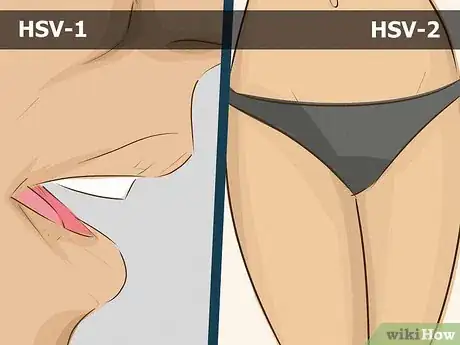
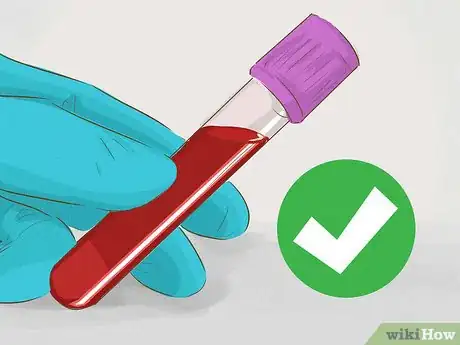
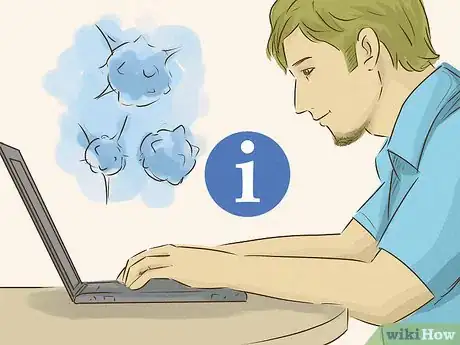
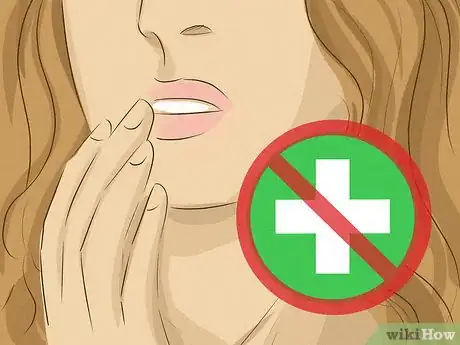
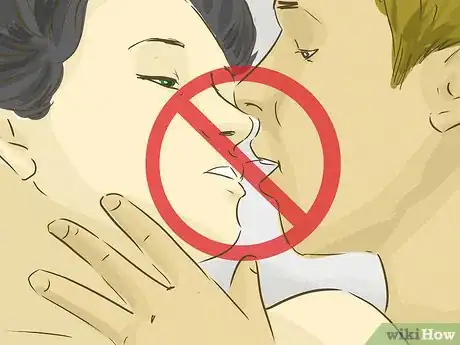
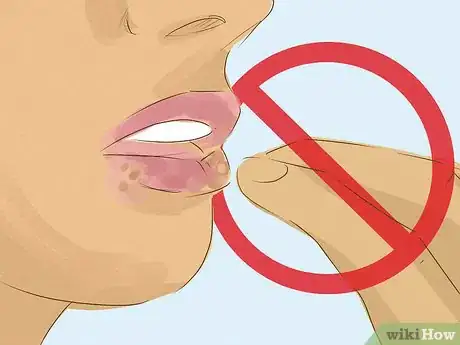
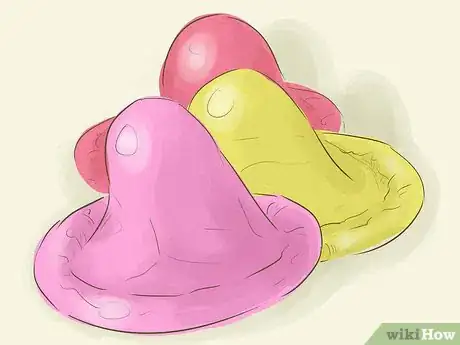
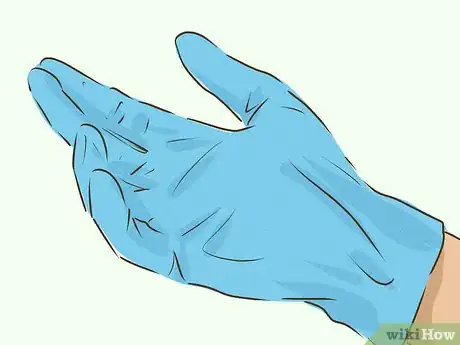
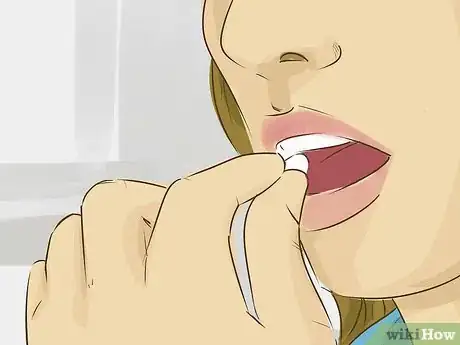




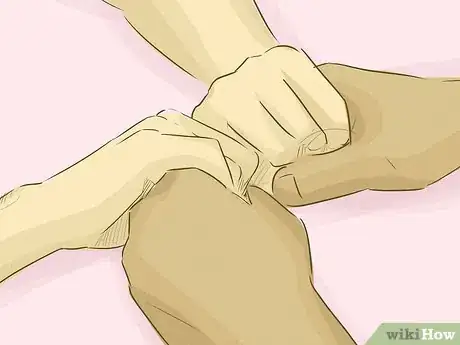
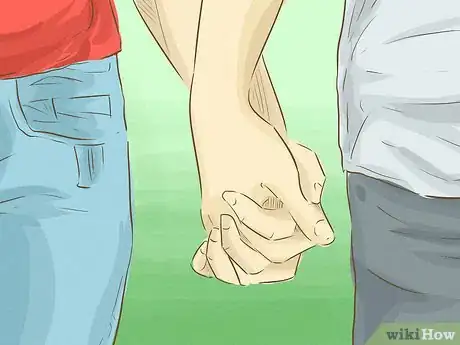

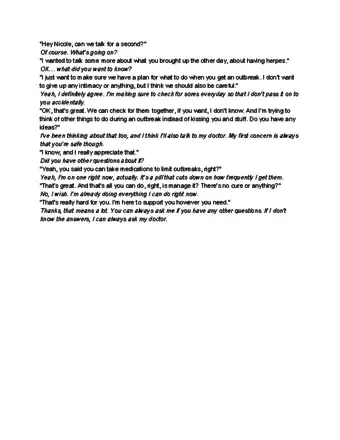
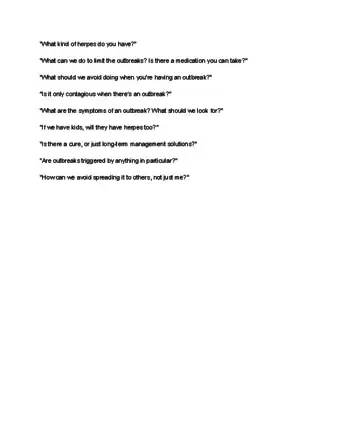
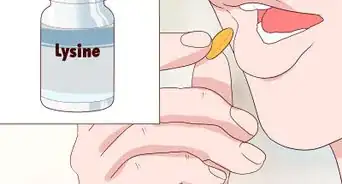


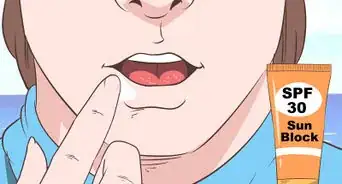
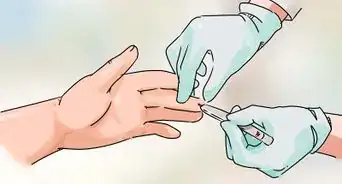
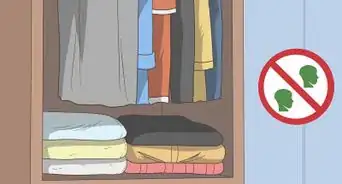



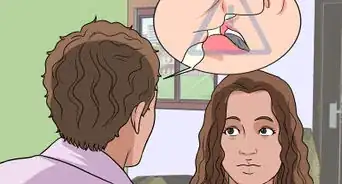
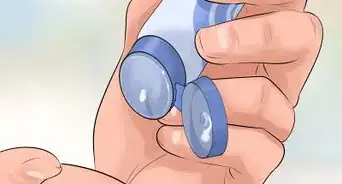
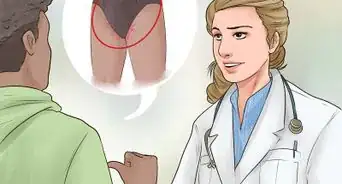








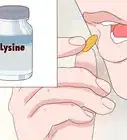


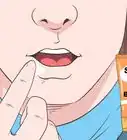



































Medical Disclaimer
The content of this article is not intended to be a substitute for professional medical advice, examination, diagnosis, or treatment. You should always contact your doctor or other qualified healthcare professional before starting, changing, or stopping any kind of health treatment.
Read More...